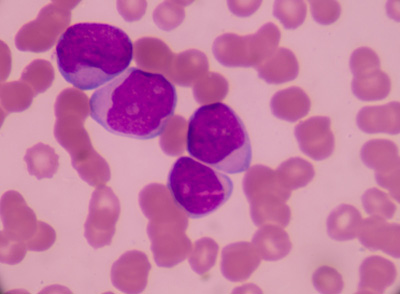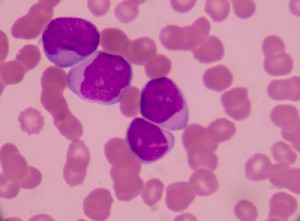EC approves Vidaza as a new treatment for elderly patients with AML
Posted: 30 October 2015 |
Dr Hervé Dombret says the ‘announcement brings hope to patients with AML, particularly the elderly and more frail patients who cannot undergo intensive therapies’…


The European Commission (EC) has approved Celgene‘s Vidaza (azacitidine for injection) for the treatment of adult patients aged 65 years or older with acute myeloid leukaemia (AML) who are not eligible for haematopoietic stem cell transplantation (HSCT).


The Vidaza Marketing Authorisation has been updated to include this new indication in AML, covering patients who have >30% myeloblasts according to the WHO classification; previously, the indication covered AML patients with <30% blasts.
Myeloblasts are white cells in the bone marrow; in AML, their functioning is disrupted and results in numerous non-functioning white cells, which can potentially interfere with the body’s ability to control infections and can lead to anaemia and haemorrhages.
For many patients, AML is typically associated with a poor prognosis particularly for those patients who cannot tolerate potentially curative therapies like stem cell transplantation. In Europe, more than 14,000 people suffer from AML, and most of these patients will die within less than one year. As an acute leukaemia, AML progresses rapidly and is typically fatal within months if stem cell transplantation is not an option. In elderly patients ( >65 years), overall survival with AML has not improved in more than 40 years, and there is a clear need for treatments that can support this patient population.
New Vidaza approval provides a new treatment option for a previously underserved group of patients
“Today’s announcement brings hope to patients with AML, particularly the elderly and more frail patients who cannot undergo intensive therapies such as stem cell transplantation,” said Hervé Dombret, M.D., Chief, Blood Disease Department (Leukaemia Unit), University Hospital Saint-Louis, AP-HP, Paris, France. “Azacitidine has demonstrated a median overall survival of 10.4 months in these patients, which is a clinically relevant benefit and gives us a new treatment option in a previously underserved group of patients.”
The EC decision is based on data from the AML-001 study of patients at least 65 years old with newly diagnosed or secondary AML with >30% bone marrow blasts. Vidaza plus best supportive care was compared with conventional care regimens. Median overall survival (OS), the primary endpoint of the study, was 10.4 months for patients receiving Vidaza compared with 6.5 months for patients receiving conventional treatment regimens. One-year survival rates with azacitidine and conventional treatment regimens were 46.5% and 34.2%, respectively.
Because this new therapeutic indication brings significant clinical benefit in comparison with existing therapies as determined through the Regulatory Review process, Vidaza will receive extended market protection in all its indications for an additional year throughout the European Economic Area.




